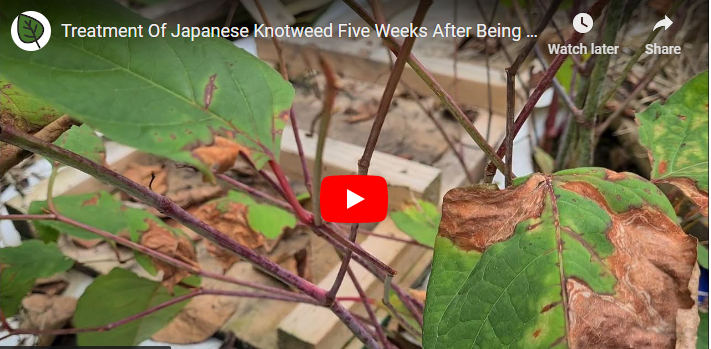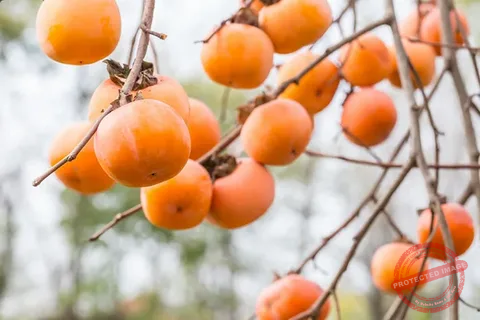Tobacco, a widely cultivated crop known for its economic and cultural significance, requires proper nourishment to thrive. Choosing the right fertilizer can significantly impact the growth and quality of your tobacco plants.
In this article, we will explore the top 15 organic and inorganic fertilizers specifically formulated for tobacco cultivation. Whether you prefer organic alternatives or opt for the efficiency of inorganic fertilizers, we have you covered. Let’s dive in and discover the best fertilizer options for your tobacco crop!
Tobacco Fertilizers 101: A Brief Overview
Before we delve into the top fertilizers for tobacco, it’s essential to understand the specific nutritional requirements of this crop. Tobacco plants thrive when provided with a balanced blend of macro and micronutrients, including nitrogen, phosphorus, potassium, calcium, magnesium, and trace elements. The 15 fertilizers listed below offer various formulations designed to meet these nutritional needs.
Read Also: Fertilizer Schedule for Tomatoes: Maximizing Your Tomato Harvest
Top 15 Fertilizers for Tobacco: Organic Options
Organic fertilizers are gaining popularity among farmers and gardeners due to their environmental friendliness and ability to enhance soil health. Here are the top 15 organic fertilizers that are suitable for tobacco cultivation:
1. Fish Emulsion Fertilizer
Fish emulsion fertilizer, rich in nitrogen, phosphorus, and trace elements, promotes vigorous growth and improves soil fertility, making it an excellent choice for tobacco farmers.
Read Also: Fertilizer Schedule for Lawns: A Comprehensive Guide to Achieving a Lush, Green Yard
2. Seaweed Extract Fertilizer
Seaweed extract fertilizer provides tobacco plants with essential nutrients, including potassium, calcium, and magnesium, while also enhancing plant resistance to diseases and pests.
3. Compost
Compost, a natural and nutrient-rich soil amendment, improves soil structure, increases moisture retention, and gradually releases essential nutrients to sustain tobacco plants throughout their growth cycle.
Read Also: Fertilizer Schedule for Sugarcane: Maximizing Yield with Proper Nutrient Management
4. Bone Meal Fertilizer
Bone meal fertilizer, a slow-release source of phosphorus and calcium, strengthens tobacco plant roots, encourages flower production, and enhances overall plant vigor.
5. Blood Meal Fertilizer
Blood meal fertilizer, high in nitrogen, supports robust leaf development and stimulates rapid growth in tobacco plants, resulting in healthier and more productive crops.
Read Also: Fertilizer Schedule for Apple Trees: Optimal Nutrition for Bountiful Harvests
6. Worm Castings
Worm castings, a type of vermicompost, enrich the soil with essential nutrients and beneficial microbes, promoting healthy root growth and overall plant vitality.
Inorganic fertilizers are known for their efficiency and quick nutrient availability. If you prefer using synthetic fertilizers for your tobacco crop, consider these top 15 inorganic options:
Read Also: 15 Best Fertilizers for Okra Farms [Organic & Inorganic]
7. Nitrogenous Fertilizers
Nitrogenous fertilizers, such as urea, ammonium nitrate, and ammonium sulfate, provide readily available nitrogen, an essential element for promoting vigorous leaf growth and high-quality tobacco leaves.
8. Phosphorous Fertilizers
Phosphorous fertilizers, including superphosphate and triple superphosphate, enhance root development and contribute to improved flowering and fruiting in tobacco plants.
Read Also: 15 Best Fertilizer for Sweet Potatoes Farm [Organic & Inorganic]
9. Potassium Fertilizers
Potassium fertilizers, like potassium chloride and potassium sulfate, help tobacco plants regulate water balance, increase disease resistance, and improve overall plant vigor, resulting in healthier and more abundant yields.
10. Complete NPK Fertilizers
Complete NPK fertilizers contain a balanced blend of nitrogen, phosphorus, and potassium, providing all the essential nutrients required for optimal tobacco growth. These fertilizers ensure that your plants receive a comprehensive nutrient profile, supporting their development throughout the growing season.
Read Also: 15 Best Fertilizers for Onions Farm [Organic & Inorganic]
11. Calcium Nitrate Fertilizer
Calcium nitrate fertilizer not only supplies nitrogen but also provides calcium, an essential nutrient for strong cell walls and overall plant structure. It aids in preventing common tobacco disorders like tip burn and blossom-end rot.
12. Micronutrient Fertilizers
Micronutrient fertilizers, such as chelated iron, manganese, and zinc, address the specific needs of tobacco plants by providing trace elements that are necessary for healthy growth and proper metabolic functions.
To further assist you in selecting the best fertilizer for your tobacco crop, we have compiled a list of frequently asked questions. Here are some common inquiries along with their respective answers:
Read Also: 15 Best Fertilizer for Cocoa Farm [Organic & Inorganic]
Is organic fertilizer better for tobacco cultivation than inorganic fertilizer?
Both organic and inorganic fertilizers have their advantages. Organic fertilizers promote long-term soil health, microbial activity, and environmental sustainability. In contrast, inorganic fertilizers offer quick nutrient availability and precise nutrient ratios. The choice ultimately depends on your specific needs and preferences as a tobacco farmer.
Read Also: 15 Best Fertilizer for Cabbage Organic & Inorganic
How often should I fertilize my tobacco plants?
Tobacco plants benefit from regular feeding throughout their growth cycle. It is recommended to fertilize the soil before planting, followed by additional applications every four to six weeks during the growing season. Be sure to adjust the fertilizer amounts according to the specific product instructions and the condition of your soil.
Can I mix organic and inorganic fertilizers for my tobacco crop?
Yes, you can blend organic and inorganic fertilizers to maximize the benefits of both. This combination allows you to harness the long-term soil-building properties of organic fertilizers while providing immediate nutrient availability through inorganic options. However, it is essential to follow proper mixing ratios and guidelines to avoid over-fertilization.
Read Also: 15 Best Fertilizers for Carrot Organic & Inorganic: Boost Your Carrot Growth!
Should I conduct a soil test before selecting a fertilizer?
Conducting a soil test is highly recommended before choosing a fertilizer for your tobacco crop. Soil tests provide valuable information about nutrient deficiencies and pH levels, allowing you to select the most appropriate fertilizer formulation to address the specific needs of your soil and plants.
Can I use general-purpose fertilizers for tobacco cultivation?
While general-purpose fertilizers may contain essential nutrients, they may not provide the ideal nutrient ratios required for tobacco crops. It is advisable to opt for fertilizers specifically formulated for tobacco cultivation to ensure optimal growth, leaf quality, and yield.
Read Also: 15 Best Fertilizers for Maize: Organic & Inorganic
How can I prevent over-fertilization or nutrient burn in my tobacco plants?
To prevent over-fertilization and nutrient burn, carefully follow the instructions provided on the fertilizer packaging. Avoid applying excessive amounts of fertilizer and ensure that you evenly distribute it around the base of the plants. Additionally, water the plants adequately after fertilization to prevent the accumulation of salts in the soil.
Conclusion: Nourish Your Tobacco Crop with the Best Fertilizers
Selecting the right fertilizer is crucial for maximizing the growth, health, and yield of your tobacco crop. Whether you choose organic or inorganic options, the 15 best fertilizers for tobacco discussed in this article provide a range of choices to suit your specific needs and preferences as a tobacco farmer.
Organic fertilizers such as fish emulsion, compost, and seaweed extract offer sustainable and environmentally friendly options that improve soil health and promote overall plant vitality. On the other hand, inorganic fertilizers like nitrogenous, phosphorous, and potassium fertilizers provide quick nutrient availability and precise ratios to meet the specific nutritional requirements of tobacco plants.
Remember to consider factors such as soil composition, nutrient deficiencies, and desired crop outcomes when selecting the appropriate fertilizer. Conducting a soil test before fertilization can provide valuable insights into the current state of your soil and guide your fertilizer choices effectively.
By nourishing your tobacco crop with the best fertilizers, you can enhance its growth, increase disease resistance, and ultimately achieve higher-quality leaves and abundant yields. Ensure proper application of fertilizers and follow recommended dosage instructions to prevent over-fertilization and nutrient burn.
In conclusion, the 15 best fertilizers for tobacco, both organic and inorganic, offer a wide range of options to support the growth and productivity of your tobacco crop. Take into consideration the specific needs of your soil and plants, and choose the fertilizer that aligns best with your farming practices and goals. With the right fertilization approach, you can optimize the health and success of your tobacco crop.



![How To Buy Farmland For Investment [Farmer’s Guide]](https://agrolearner.com/wp-content/uploads/2024/01/Farmland.jpg)